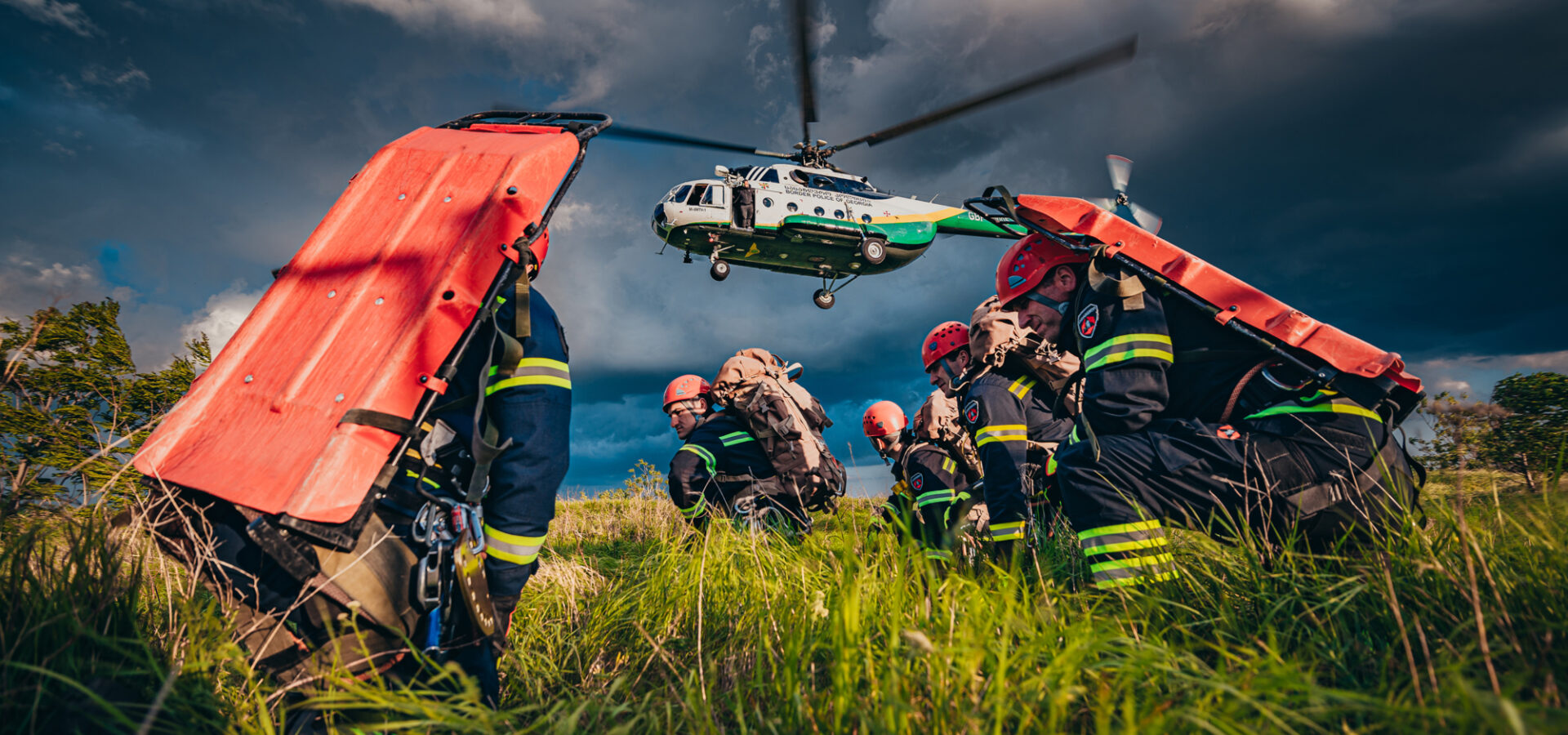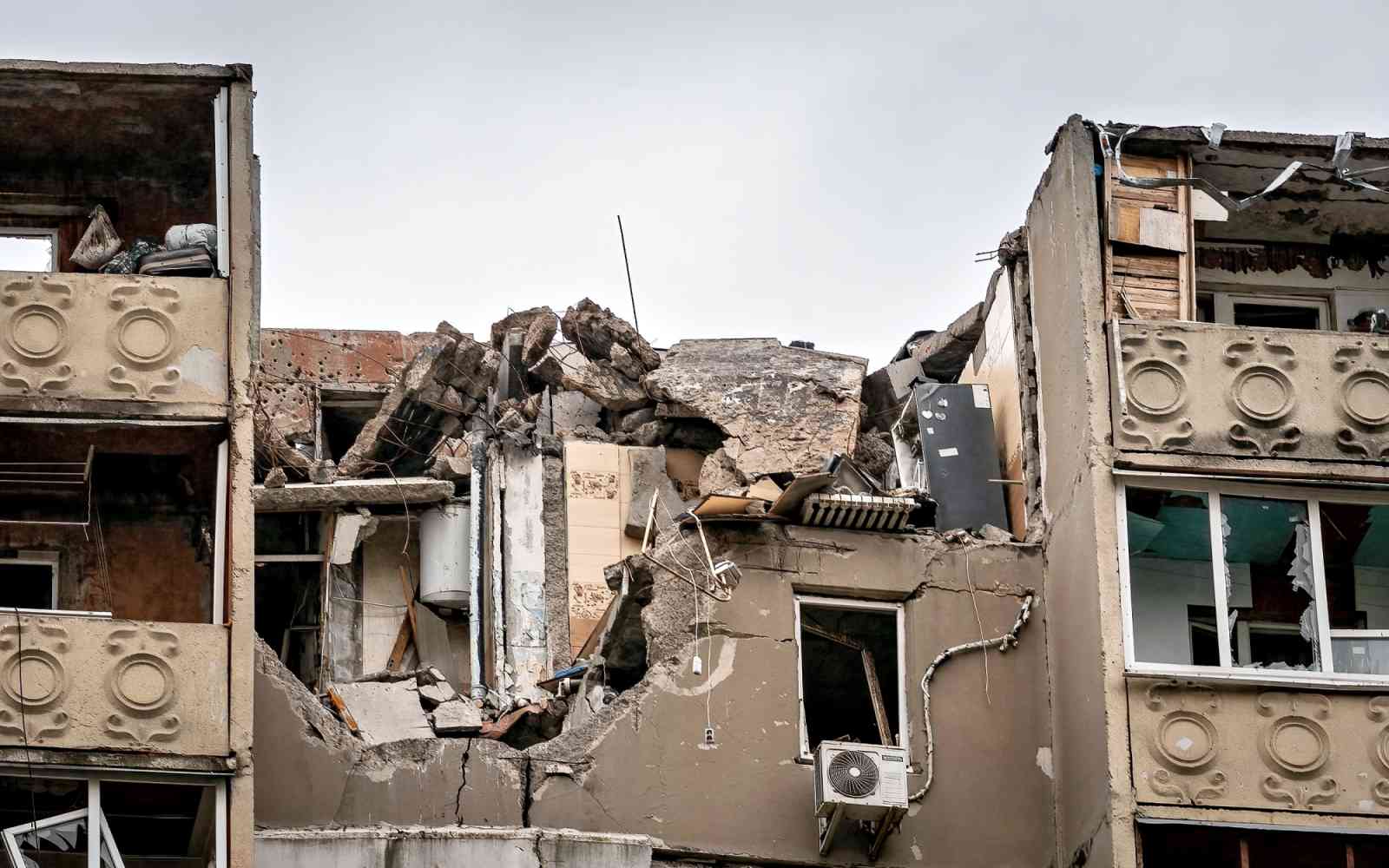The United Nations Office for Project Services (UNOPS)
Preparing Georgia’s emergency responders for crises
UNOPS and European Union extend vital assistance to emergency services of Georgia.

Latest updates
July 2025
- UNOPS and the European Union have successfully completed the three-year Technical Assistance for Improved Civil Protection and Emergency Management in Georgia project under the EU SAFE Programme.
- UNOPS procured over $1 million in advanced emergency response and rescue equipment. Georgia’s Emergency Management Service (EMS) is now equipped with modern search and rescue gear for land, sea, and mountain operations, including high-mobility and all-terrain vehicles, skiing equipment, victim search equipment and specialized rescue tools.
- More than 400 emergency personnel and 129 instructors were trained through intensive, internationally supported programmes. These included targeted trainings covering fire, water, and mountain rescue; mine and rope rescue; Chemical, Biological, Radiological and Nuclear (CBRN) incident response; and inclusive rescue techniques for persons with disabilities. A full-scale interagency field exercise involving nine national agencies tested coordination in simulated crisis conditions.
- To promote broader societal preparedness, 48 community volunteers were trained and outreach efforts included specialized training for over 70 journalists on how to report responsibly during emergency situations.
- UNOPS also supported the development of a children’s emergency preparedness publication designed to help younger generations understand how to stay safe during crises.
- “This project has significantly strengthened Georgia’s capacity to prepare for and respond to emergencies. Through a comprehensive package of equipment, training and technical support, we have contributed to a safer and more resilient Georgia. We are grateful to the European Union for its generous support, and to our national partners, especially the Emergency Management Service of Georgia, for their commitment throughout the project. Special thanks to all experts, consultants, and UNOPS colleagues who helped deliver this important work.” - Elene Aladashvili, Senior Program Manager at UNOPS.
- This article was originally published on 02 October 2023 and has been updated to reflect recent project developments.
UNOPS and the European Union have extended support to Georgia's civil protection services to develop and boost public safety and resilience of local communities.
Part of the broader European Union Security, Accountability and Fight Against Crime in Georgia (EU SAFE) Programme, the project is a response to escalating challenges posed by climate change and emergent disasters.
The effects of climate change, coupled with a rise in both natural disasters and other emergencies, have highlighted the urgent need for strong emergency management mechanisms in Georgia. Recent devastating landslides, forest fires and seismic tremors from earthquakes, accentuate the country’s need for increasing resilience and preparedness.
"We are happy to be able to equip Georgia's Emergency Management Service (EMS) to better prepare them for modern crises,” said Nicholas Cendrowicz, Head of Cooperation, EU Delegation to Georgia.
“Everyday, we are witnessing the devastating results of climate change. Recent emergencies highlight the need for robust emergency management mechanisms. We hope the donated equipment and the complementary technical assistance will help EMS to improve its response to emergencies and disasters and better protect the health and lives of people living in Georgia,” he added.
As part of the partnership, UNOPS procured more than $1 million worth of safety equipment and high-tech solutions to support the Emergency Management Service of the Ministry of Internal Affairs of Georgia. This included emergency rescue and training equipment, victim search equipment for land, sea and mountains, high-mobility vehicles , all-terrain vehicles, skiing equipment, and drones for search and rescue operations.
The delivery of state-of-the art equipment will help strengthen the capabilities of Georgia's civil protection agencies, enabling quicker and more effective responses during emergencies.
We would like to express our gratitude to the European Union and UNOPS for their continued assistance in equipping our firefighters and rescue teams with very important equipment.
“This contribution will play an important role in the development of the institutional capacity of our service. It’s also worth highlighting the importance of strengthening the capabilities of the training center in the areas of water and mountain rescue operations,” said Nino Barkaia, Head of International Relations Division at Georgia’s Emergency Management Service.
The project will bolster institutional and operational capacities of the Emergency Management Service in Georgia. Through a range of activities including training, field exercises and workshops, the project aims to enhance the institutional capacity as well as expertise and preparedness of key personnel. This will help prepare their teams to be more responsive and efficient in emergency management.
“Such efforts by UNOPS in Georgia are not just about the immediate mitigation of hazards. They weave into the long-term narrative of national and regional security, ” explained Claude-Andre Nadon, UNOPS Georgia Country Manager.
“Enhanced emergency management systems help minimize the socio-economic ramifications of disasters, ensuring the country's economic stability. By strengthening its emergency management system, Georgia not only protects its own people but also casts a protective web over the broader region, heralding a brighter, safer future,” he added.
The project will help improve regulatory and operational frameworks and increase technological capabilities to ensure that Georgia's civil protection system aligns with European and international standards
Intensive training programs have started for the instructors, firefighters and rescuers, delivered by international experts.
Basic, vocational and on-duty training programmes will include courses for water, fire and mountain search and rescue, mine and rope rescue as well as chemical, biological, radiological and nuclear incident response and rescue of persons with disabilities. The workshops, training courses and other activities will commence in 2023 and continue throughout 2024.











